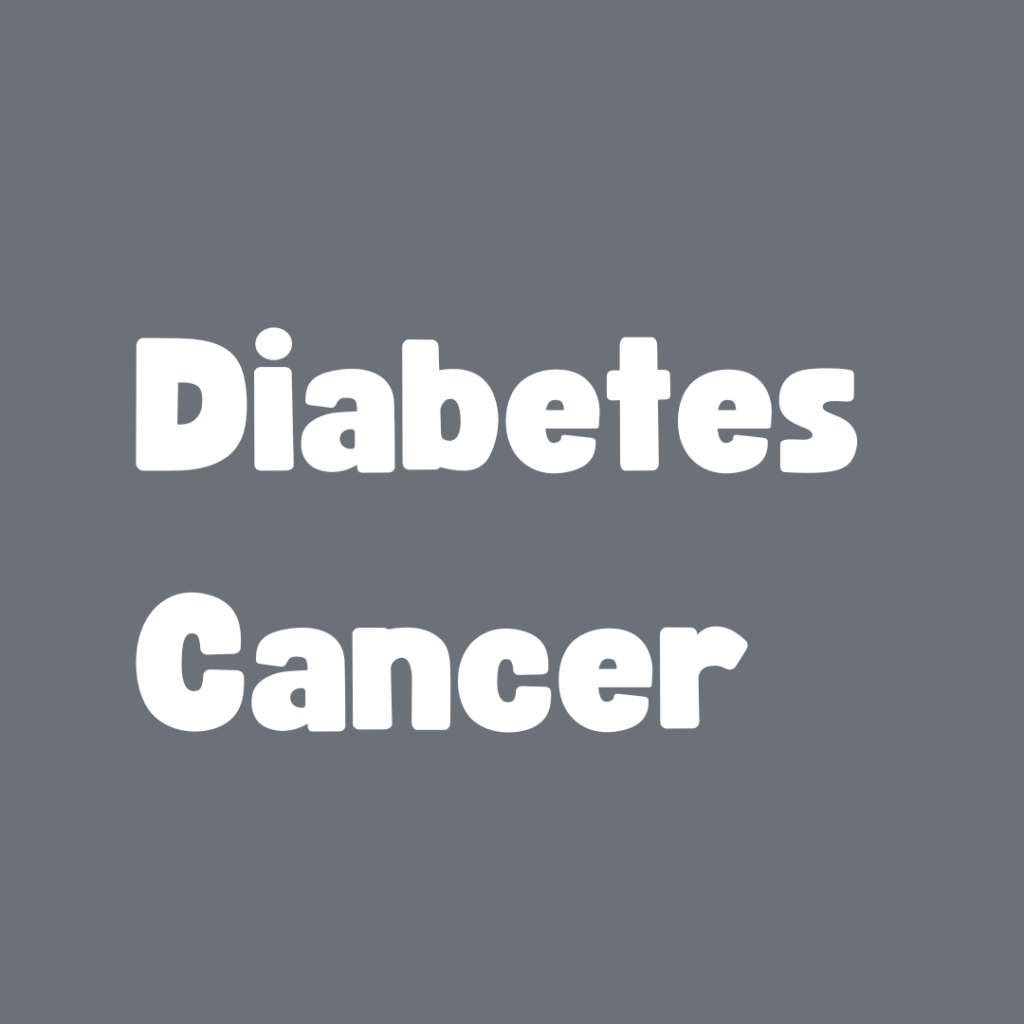Introduction
Managing diabetes and cancer can be a daunting task for patients, with the right knowledge support, it is possible to lead a fulfilling life. this comprehensive guide, we will provide you with valuable information on understanding both conditions and offer practical tips on managing them effectively.
For more articles check Tipshealthhelp
Table of Contents
1. Understanding Diabetes
2. Understanding Cancer
3. Managing Diabetes
4. Managing Cancer
5. Healthy Lifestyle Tips
6. Nutrition and Diet
7. Exercise and Physical Activity
8. Medication and Treatment Options
9. Monitoring and Managing Symptoms
10. Support and Resources
11. Conclusion
12. FAQ
Understanding Diabetes
Diabetes is a non-curable disease that affects the usage of glucose by the cells of the body, or its production by the pancreas. There are two essential sorts of diabetes: type 1 and type 2.Diabetes type 1 is an insulin dependent diabetes and typically presents in early childhood. In this case, type 2 diabetes can be handled without the regular use of insulin through adjustment to eating habits and regular physical exercise.
Understanding Cancer
Cancer is a multi factorial disease that entails the uncontrolled proliferation of cells within a given body region. There is a great number of cancer types that are distinguished according to their peculiarities and require certain treatments. It is important to know that cancer can develop almost anywhere in the body and may need to be treated with more than one type of specialist.
Managing Diabetes
Diabetes mellitus requires proper management of blood stain levels in the body through balancing their levels, checking their levels more often, eating heathy, exercising and consuming prescribed drugs. It very important to coordinate and find a suitable plan that will work for you by consulting with your doctor.
Managing Cancer
Treating cancer is complex involving a team effort, which includes surgery, chemotherapy, radiation therapy, as well as selective therapy like targeted therapies, immunotherapies among others. Your oncologist shall recommend specific treatment methods suitable for the type and the stage of cancer diagnosed. Another crucial aspect of cancer care is patient compliance and effective interaction with the specialist who provides you with treatment.
Healthy Lifestyle Tips
Lifestyle changes that are good for controlling diabetes are also good in controlling cancer. Others are; avoiding smoking, moderate use of alcohol, sufficient rest, reducing stress and controlling one’s weight. This if bottled in the right way can dramatically enhance a individuals total health status reducing complications.
Nutrition and Diet
Healthy diet is recommended for both diabetes and cancer patients since we eat several times about the day. Eat healthier foods such as whole grain products, lean meat, fruits, vegetables and the healthy fats. Reduce consumption of foods in cakes,cookies, sweets, snacks, fizzy and sugary drinks and foods with a high level of fats. Try to seek the help of a registered dietitian to help you design a meal plan that will best work for you.
Exercise and Physical Activity
Both cancers and diabetes can be improved by enduring exercise practices. Perform at least 150 minutes of moderate activity exercise fro example brisk walking, cycling or swimming sessions in a week. Regular exercise assists in regulation of blood sugar, weight maintenance, promotion of cardiovascular health and increase general energy.
Medication and Treatment Options
In the case of diabetes, your healthcare provider will advise your to take oral medicines or insulin shots. These medicines should be consumed with the prescription and recommendations do require frequent checkups of blood glucose levels. In regard to cancer management, your oncologist will recommend therapy within the concepts of surgical intervention, chemotherapy, radiation therapy, and target therapy depending on your type of cancer.
Monitoring and Managing Symptoms
Though, living with diabetes and cancer could prove to be quite challenging for a patient, it can still be done with dignity using the right knowledge support As promised, in this comprehensive guide, we will share useful information on both conditions and provide suggestions to endear efficient management of the conditions.
Support and Resources
Examples of such conditions are diabetes or cancer, a mere experience of which can be stressful and draining. When diagnosed with this condition one has to seek support from their family, friends or support groups to share on any experiences they come across or get valuable information from such people. Further, a lot of information from discussion boards, starting from articles to consulting with psychological services is open to help you affect life with these disorders.
Conclusion
Diabetes and cancer are chronic diseases that need to be approached holistically using medical advice, the necessary dietary changes and counseling. If patients can gain knowledge of these conditions and follow the recommended treatment regimens, they can live normal lives.
FAQ
1. Can diabetes increase the risk of developing cancer?
2. What are the strategies for the proper control of blood sugar levels?
3. Are there any specific dietary restrictions for cancer patients?
4. What exercise routine is suitable for diabetes and cancer management?
5. What are the potential side effects of cancer treatments?
6. How can I find support groups for diabetes and cancer patients?
7. Is it possible to prevent diabetes or cancer through lifestyle changes?



